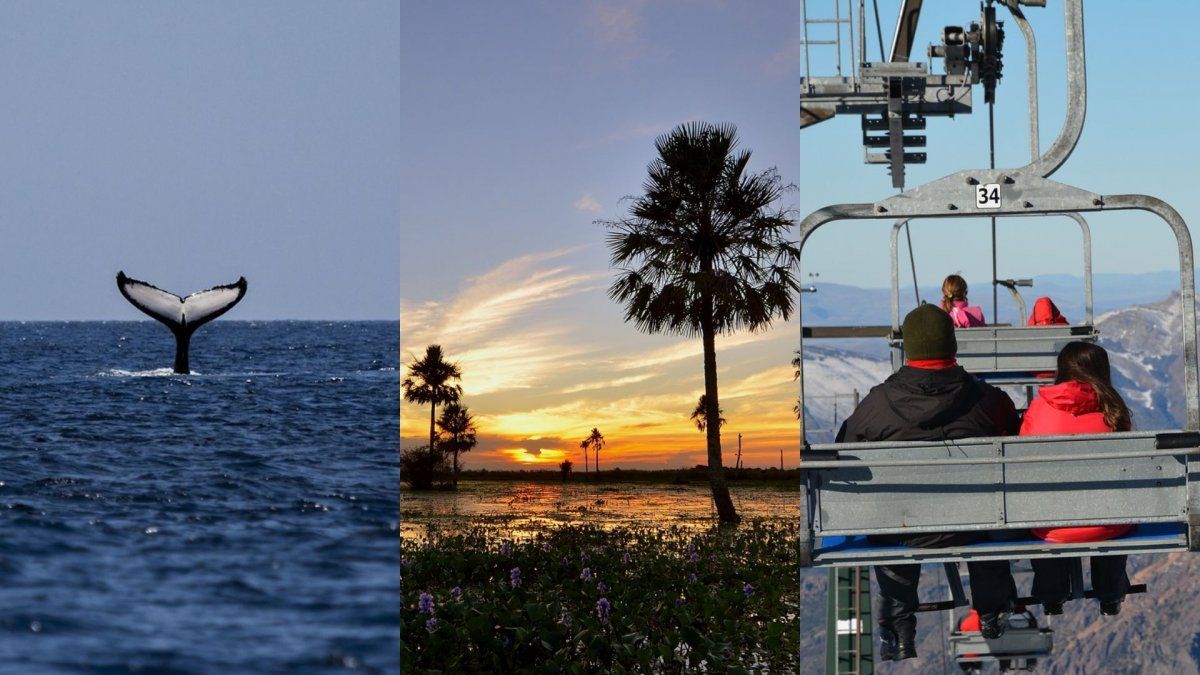According to the National Institute of Statistics and Censuses (INDEC), The interannual variation in the last quarter (March-April-May) of overnight stays in hotels fell by 11.3% and guest occupancy fell by 14%. “Argentina faces an unprecedented tourism crisis due to the virulence and ferocity of the economic adjustment that the National Government is applying,” warns a report prepared by the Frente Renovador.
They point out that Recessive economic measures negatively impact the sector. “The irrational increase in the rates of electricity, gas, water, among other services, added to the lack of incentive for tourism by the National State, is breaking the internal market, also generating more unemployment and the decline of SMEs, as occurs with other sectors,” they warn.
Consequently, the work points out that the Government’s economic course generates falls in:
- hotel occupancy
- Gastronomy
- Destruction of the internal market
And, according to the data they take as reference, key tourist cities record hotel occupancy below 20% and gastronomy suffers a year-on-year drop of 12%. In fact, they pointed out that last summer season there was a drop of 18%.
The worst fall in gastronomy in 10 years
restaurant-tiger.jpg
The high rates in services threaten the survival of restaurants.
The Hotel and Gastronomic Business Federation of the Argentine Republic (FEHGRA) reported a 12% loss in the gastronomic industry. This decline is the worst in the last decade, with restaurant consumption plummeting and establishments struggling to survive.
This is a result of the economic context, which includes the rates on servicesadds the liberation of the rental marketwhich has put even more pressure on maintenance costs.
He cost of electrical service went up a 402% in the last 6 months. This impacts the operating costs of tourist and gastronomic services, which are reflected in the prices of the services. Added to this is the liquefaction of the purchasing power of tourists, leaving a very low ceiling for consumption.
Tourism: a long weekend to forget
So much In gastronomy as in the hotel industry, the consequences are being alarming and the decline in hotel accommodation is felt in every corner of the country. For example, they mention that:
- Bariloche, an emblematic tourist destination, has seen its hotel occupancy plummet to less than 20% in the current low season.
- In Pinamar, more than 50% of the businesses that open all year round did not do so this long weekend.
- Mar del Plata, on the long weekend of 06/14, registered an occupancy of 35% and, for the following one, only 65%.
“This fall shows a national trend where the lack of tourists due to the fall in purchasing power is causing the collapse in occupancy,” according to the work of the Renewal Front. And it adds that the Association of Tourism Hotels (AHT) warns about a dramatic decrease in demand due to the context of uncertainty and economic recession.
Likewise, this is not limited to a long weekend, since The data reflects that the recent low season is being the worst in history. “The increase in fixed costs, such as heating, electricity among others, is bringing many businesses to the brink of closure,” the report emphasizes. The data demonstrates the discouraging outlook.
Less average consumption in tourist destinations
The interannual variation a 10.8% collapse in average occupancy in the last quarter. “This translates into lower average spending in tourist destinations and loss of profitability for the sector,” the analysts indicate.
In summary, The numbers warn of loss of profitability and crisis in the tourism sector. “The inefficiency of the State to generate policies to encourage tourism, added to the liquefaction of salaries due to the brutal increase in essential services and the uncertainty of Argentinians, leave the balance of a tourism sector falling precipitously,” the work denounces.
And he warns that this generates other impacts on promoting less developed areasthe loss of incentive for foreign investments and the detriment of national pride and the country’s cultural identity.
Source: Ambito




